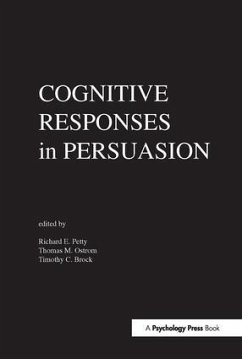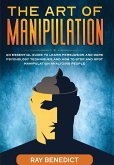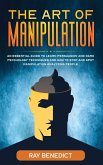Cognitive Responses in Persuasion
Herausgeber: Petty, Richard; Brock, T. C.; Ostrom, T. M.
Cognitive Responses in Persuasion
Herausgeber: Petty, Richard; Brock, T. C.; Ostrom, T. M.
- Gebundenes Buch
- Merkliste
- Auf die Merkliste
- Bewerten Bewerten
- Teilen
- Produkt teilen
- Produkterinnerung
- Produkterinnerung
First Published in 1982. Routledge is an imprint of Taylor & Francis, an informa company.
Andere Kunden interessierten sich auch für
![Resistance and Persuasion Resistance and Persuasion]() Resistance and Persuasion172,99 €
Resistance and Persuasion172,99 €![Constructing Measures Constructing Measures]() Mark WilsonConstructing Measures168,99 €
Mark WilsonConstructing Measures168,99 €![The Art of Manipulation The Art of Manipulation]() Ray BenedictThe Art of Manipulation17,99 €
Ray BenedictThe Art of Manipulation17,99 €![Legal Responses to Wife Assault Legal Responses to Wife Assault]() N. Zoe HiltonLegal Responses to Wife Assault95,99 €
N. Zoe HiltonLegal Responses to Wife Assault95,99 €![The Art of Manipulation The Art of Manipulation]() Ray BenedictThe Art of Manipulation22,99 €
Ray BenedictThe Art of Manipulation22,99 €![The Psychology of Fraud, Persuasion and Scam Techniques The Psychology of Fraud, Persuasion and Scam Techniques]() Martina DoveThe Psychology of Fraud, Persuasion and Scam Techniques178,99 €
Martina DoveThe Psychology of Fraud, Persuasion and Scam Techniques178,99 €![Emerging Cognitive Abilities in Early infancy Emerging Cognitive Abilities in Early infancy]() Emerging Cognitive Abilities in Early infancy167,99 €
Emerging Cognitive Abilities in Early infancy167,99 €-
-
-
First Published in 1982. Routledge is an imprint of Taylor & Francis, an informa company.
Produktdetails
- Produktdetails
- Verlag: Psychology Press
- Seitenzahl: 490
- Erscheinungstermin: 1. September 1982
- Englisch
- Abmessung: 240mm x 161mm x 31mm
- Gewicht: 895g
- ISBN-13: 9780898590258
- ISBN-10: 0898590256
- Artikelnr.: 49496088
- Herstellerkennzeichnung
- Libri GmbH
- Europaallee 1
- 36244 Bad Hersfeld
- gpsr@libri.de
- Verlag: Psychology Press
- Seitenzahl: 490
- Erscheinungstermin: 1. September 1982
- Englisch
- Abmessung: 240mm x 161mm x 31mm
- Gewicht: 895g
- ISBN-13: 9780898590258
- ISBN-10: 0898590256
- Artikelnr.: 49496088
- Herstellerkennzeichnung
- Libri GmbH
- Europaallee 1
- 36244 Bad Hersfeld
- gpsr@libri.de
Edited by Richard E. Petty University of Missouri-Columbia, Thomas M. Ostrom, Timothy C. Brock Ohio State University.
PART 1: HISTORICAL AND METHODOLOGICAL PERSPECTIVES IN THE ANALYSIS OF
COGNITIVE RESPONSES: AN INTRODUCTION 1. Historical Foundations of the
Cognitive Response Approach to Attitudes and Persuasion 2. The Nature of
Attitudes and Cognitive Responses and Their Relationships to Behavior 3.
Thought Disruption and Persuasion: Assessing the Validity of Attitude
Change Experiments 4. Psychophysiological Functioning, Cognitive Responding
and Attitudes 5. Methodological Issues in Analyzing the Cognitive Mediation
of Persuasion 6. Cognitive Response Analysts: An Appraisal PART II: THE
ROLE OF COGNITIVE RESPONSES IN ATTITUDE CHANGE PROCESSES 7. Effects of
Source Characteristics on Cognitive Responses and Persuasion 8. Recipient
Characteristics as Determinants of Responses to Persuasion 9. Attitude
Polarization In Groups 10. Anticipatory Opinion Effects 11. Repetition,
Cognitive Responses, and Persuasion 12. Cognitive Responses to Mass Media
Advocacy PART Ill: THEORETICAL PERSPECTIVES IN THE ANALYSIS OF COGNITIVE
RESPONSES 13. The Probablloglcal Model of Cognitive Structure and Attitude
Change 14. Balance Theory and Phenomenology 15. Acceptance, Yielding and
Impact: Cognitive Processes In Persuasion 16. Integration Theory Applied to
Cognitive Responses and Attitudes 17. Principles of Memory and Cognition in
Attitude Formation
COGNITIVE RESPONSES: AN INTRODUCTION 1. Historical Foundations of the
Cognitive Response Approach to Attitudes and Persuasion 2. The Nature of
Attitudes and Cognitive Responses and Their Relationships to Behavior 3.
Thought Disruption and Persuasion: Assessing the Validity of Attitude
Change Experiments 4. Psychophysiological Functioning, Cognitive Responding
and Attitudes 5. Methodological Issues in Analyzing the Cognitive Mediation
of Persuasion 6. Cognitive Response Analysts: An Appraisal PART II: THE
ROLE OF COGNITIVE RESPONSES IN ATTITUDE CHANGE PROCESSES 7. Effects of
Source Characteristics on Cognitive Responses and Persuasion 8. Recipient
Characteristics as Determinants of Responses to Persuasion 9. Attitude
Polarization In Groups 10. Anticipatory Opinion Effects 11. Repetition,
Cognitive Responses, and Persuasion 12. Cognitive Responses to Mass Media
Advocacy PART Ill: THEORETICAL PERSPECTIVES IN THE ANALYSIS OF COGNITIVE
RESPONSES 13. The Probablloglcal Model of Cognitive Structure and Attitude
Change 14. Balance Theory and Phenomenology 15. Acceptance, Yielding and
Impact: Cognitive Processes In Persuasion 16. Integration Theory Applied to
Cognitive Responses and Attitudes 17. Principles of Memory and Cognition in
Attitude Formation
PART 1: HISTORICAL AND METHODOLOGICAL PERSPECTIVES IN THE ANALYSIS OF
COGNITIVE RESPONSES: AN INTRODUCTION 1. Historical Foundations of the
Cognitive Response Approach to Attitudes and Persuasion 2. The Nature of
Attitudes and Cognitive Responses and Their Relationships to Behavior 3.
Thought Disruption and Persuasion: Assessing the Validity of Attitude
Change Experiments 4. Psychophysiological Functioning, Cognitive Responding
and Attitudes 5. Methodological Issues in Analyzing the Cognitive Mediation
of Persuasion 6. Cognitive Response Analysts: An Appraisal PART II: THE
ROLE OF COGNITIVE RESPONSES IN ATTITUDE CHANGE PROCESSES 7. Effects of
Source Characteristics on Cognitive Responses and Persuasion 8. Recipient
Characteristics as Determinants of Responses to Persuasion 9. Attitude
Polarization In Groups 10. Anticipatory Opinion Effects 11. Repetition,
Cognitive Responses, and Persuasion 12. Cognitive Responses to Mass Media
Advocacy PART Ill: THEORETICAL PERSPECTIVES IN THE ANALYSIS OF COGNITIVE
RESPONSES 13. The Probablloglcal Model of Cognitive Structure and Attitude
Change 14. Balance Theory and Phenomenology 15. Acceptance, Yielding and
Impact: Cognitive Processes In Persuasion 16. Integration Theory Applied to
Cognitive Responses and Attitudes 17. Principles of Memory and Cognition in
Attitude Formation
COGNITIVE RESPONSES: AN INTRODUCTION 1. Historical Foundations of the
Cognitive Response Approach to Attitudes and Persuasion 2. The Nature of
Attitudes and Cognitive Responses and Their Relationships to Behavior 3.
Thought Disruption and Persuasion: Assessing the Validity of Attitude
Change Experiments 4. Psychophysiological Functioning, Cognitive Responding
and Attitudes 5. Methodological Issues in Analyzing the Cognitive Mediation
of Persuasion 6. Cognitive Response Analysts: An Appraisal PART II: THE
ROLE OF COGNITIVE RESPONSES IN ATTITUDE CHANGE PROCESSES 7. Effects of
Source Characteristics on Cognitive Responses and Persuasion 8. Recipient
Characteristics as Determinants of Responses to Persuasion 9. Attitude
Polarization In Groups 10. Anticipatory Opinion Effects 11. Repetition,
Cognitive Responses, and Persuasion 12. Cognitive Responses to Mass Media
Advocacy PART Ill: THEORETICAL PERSPECTIVES IN THE ANALYSIS OF COGNITIVE
RESPONSES 13. The Probablloglcal Model of Cognitive Structure and Attitude
Change 14. Balance Theory and Phenomenology 15. Acceptance, Yielding and
Impact: Cognitive Processes In Persuasion 16. Integration Theory Applied to
Cognitive Responses and Attitudes 17. Principles of Memory and Cognition in
Attitude Formation









